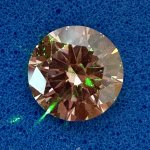
News • Endoscopic magnetometer
Finding cancer with diamond sensors
Researchers report they have built a new non-toxic and non-radioactive handheld device that uses the unique properties of diamonds to diagnose metastasized breast cancer.

Researchers report they have built a new non-toxic and non-radioactive handheld device that uses the unique properties of diamonds to diagnose metastasized breast cancer.
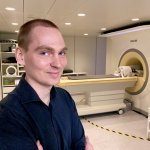
A new sensor prototype can detect errors in MRI scans in a way that is impossible for current electrical sensors – and hopefully pave the way for MRI scans that are better, cheaper and faster.
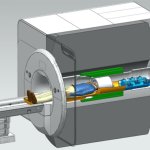
Ten times more detail than current 7T scanners, over 50 times more than 3T: A new type of functional MRI will allow neuroscientists to more precisely localize and trace brain networks.
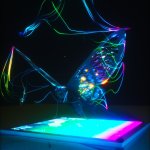
Inspired by the enhanced visual system of butterflies, researchers have developed an imaging sensor to “see” into the UV range for differentiating between cancer and normal cells.
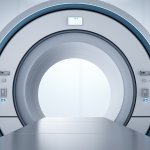
Hyperpolarized nuclear magnetic resonance enables major medical advances in molecular diagnostics, for example for cardiovascular diseases or cancer therapy.
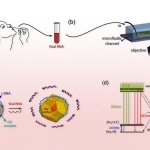
Scientists at have designed a quantum sensor to detect SARS-CoV-2 faster, cheaper, and more accurate than the current gold-standard technique, PCR.
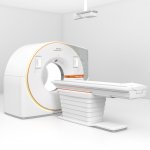
For the Siemens Healthineers team developing new and ever higher performing computed tomographs is daily fare. But when they introduced their most recent CT system an unusual sense of pride was palpable. The photon-counting detector in the new Naeotom Alpha scanner is different from previous models and achieves a level of detail hitherto unknown.

Until recently, the major challenges surrounding Point-of-Care-testing (POCT) concerned the quality of the results and improving the reagents and the procedures in order to optimise patient care. In the modern clinical environment, however, IT security of POCT devices is becoming increasingly important, in Germany also due to new industry-specific safety standards under the Act on the Federal…

Medical and professional leaders in radiology overwhelmingly believe artificial intelligence (AI) will be the most positive development for their sector and their professions in the coming decade, according to a report by the British Institute of Radiology (BIR) published today.

Checking a lump for malignancy, finding out if food is fresh, just with your smartphone? It’s possible, according to Eindhoven University of Technology researchers in the Netherlands. Their recently presented spectrometer is small enough to insert into a smartphone. This device is not yet ready for use on a big scale, Professor Andrea Fiore, supervisor of the Eindhoven research team points out.…

Glucose testing is both a headache and an opportunity for clinical laboratories here in the United States and across the globe. It is a headache because many point-of-care and patient self-test glucose devices in wide use today lack the reliability of glucose testing performed in medical laboratories that use sophisticated diagnostic instruments.